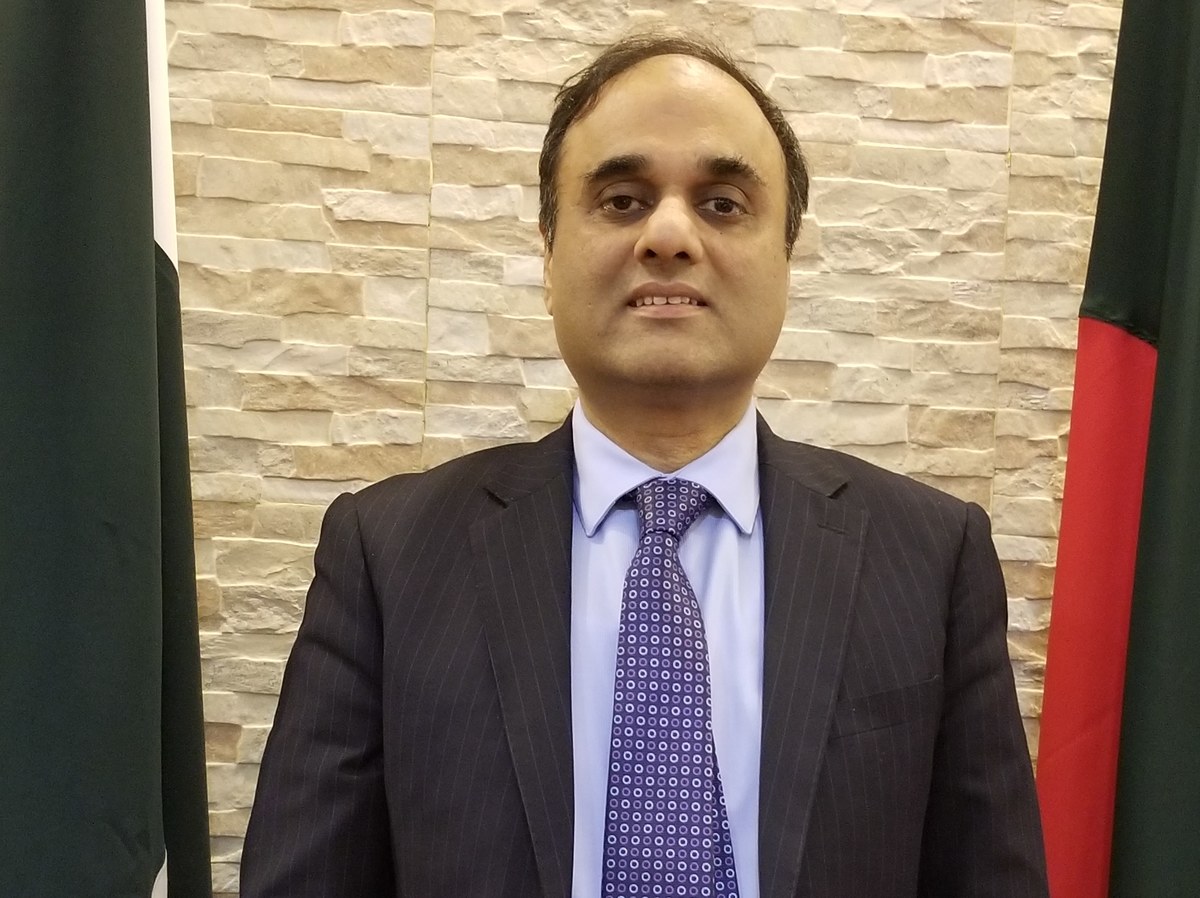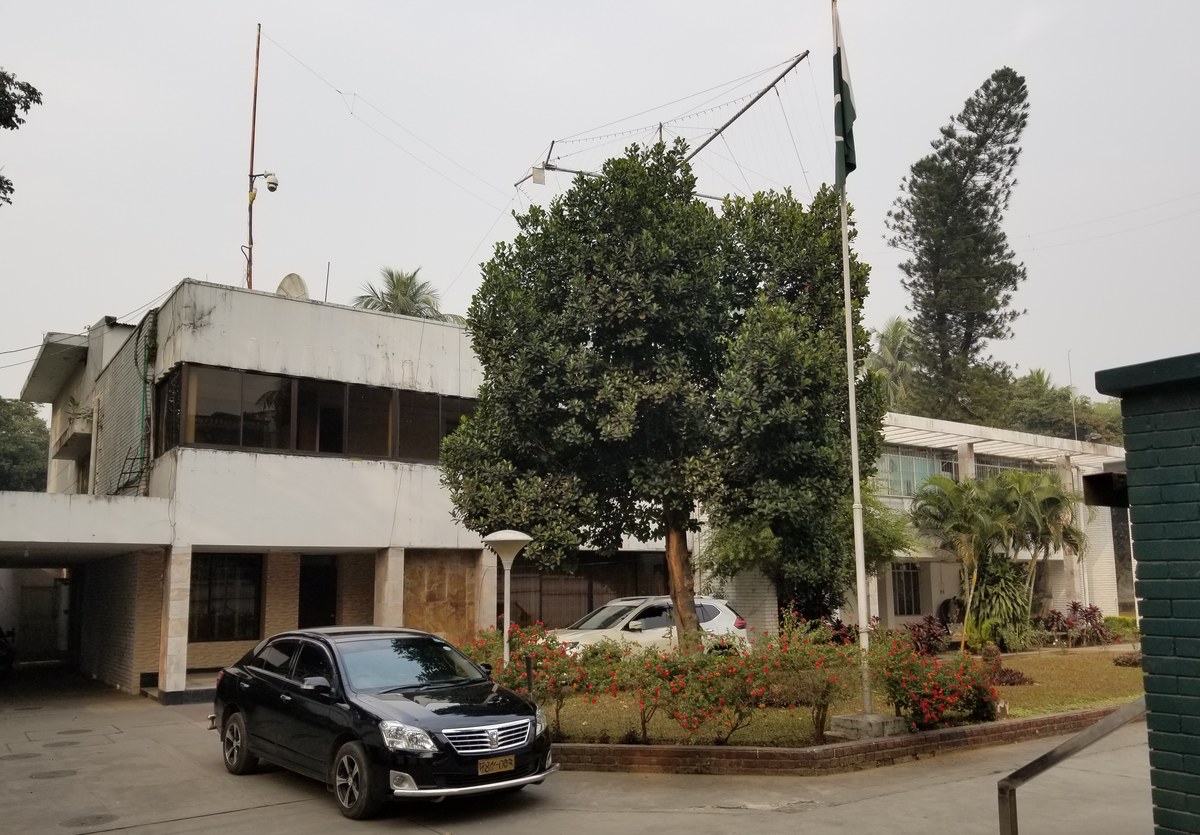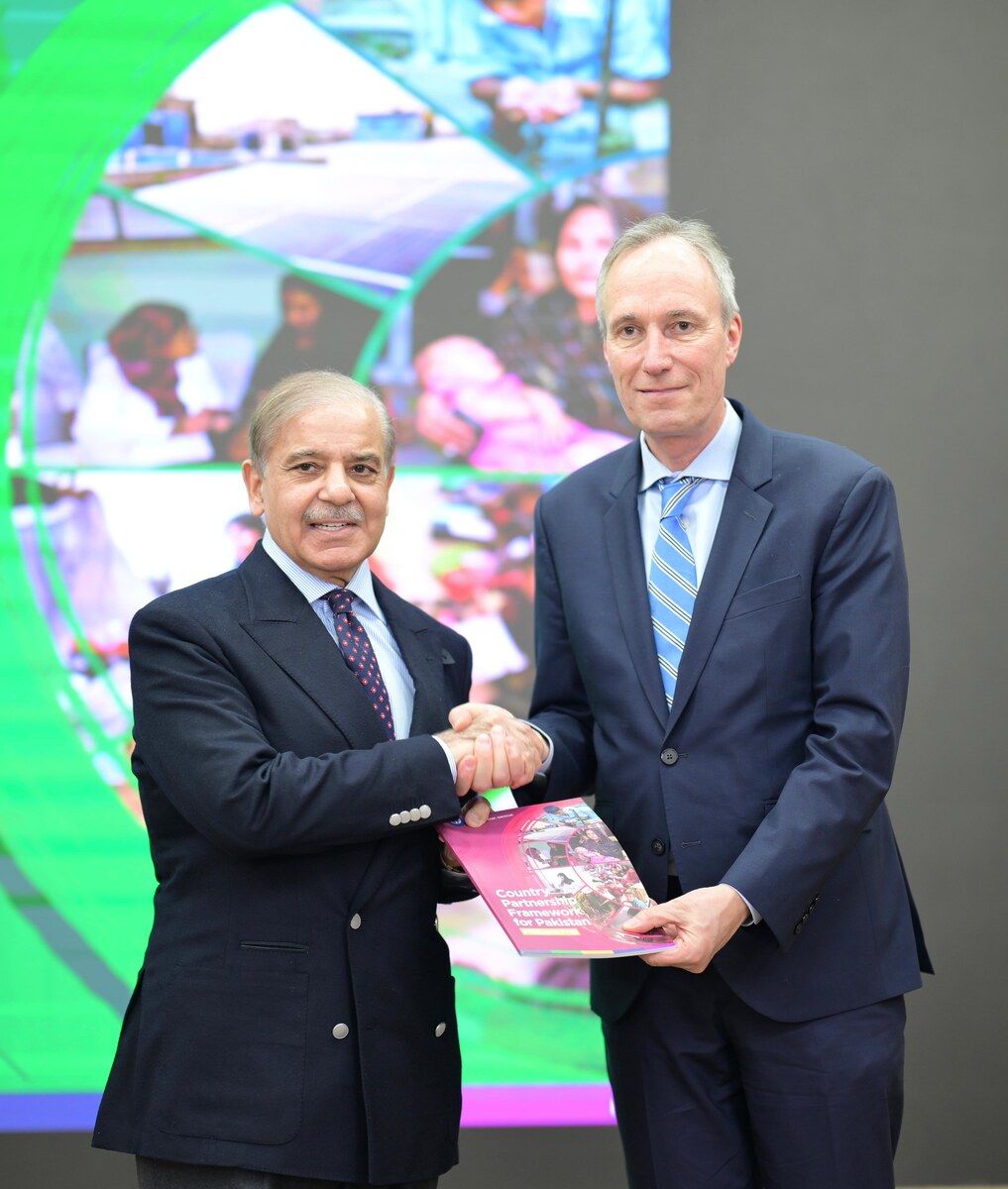DHAKA: Pakistan wants to enhance “people to people” contact with Bangladesh and boost bilateral relations in the areas of trade, business, education, culture and sports, Imran Ahmed Siddiqui, the Pakistani High Commissioner Designate to Dhaka, said on Thursday.
Bangladesh approved Siddiqui as the new Pakistani High Commissioner in November, filling a post that had been vacant for nearly 20 months. He arrived in the Bangladeshi capital of Dhaka in mid-January.
“In addition to the government to government ties, my endeavor will be to promote and strengthen people to people contacts as well as bilateral economic, trade and cultural relations between our two countries with the cooperation of the government of Bangladesh,” Siddiqui told Arab News in an interview at his office last week. “I sense a similar desire among the people and the government of Bangladesh for greater and stronger ties between the two brotherly, neighboring States.”

Imran Ahmed Siddiqui, Pakistan High Commissioner, Designate to Dhaka at his office in Dhaka, Friday Jan 24, 2020 (Photo by Shehab Sumon - Arab News)
At the end of the British colonial rule of India in 1947, the territory of what is now Bangladesh became East Pakistan, politically united with West Pakistan but separated from it by hundreds of kilometers of Indian land.
East Pakistan broke away to become independent Bangladesh after a war between India and Pakistan in 1971 in which about three million people were killed. Relations between the two nations have remained frosty since.
In 2019, Bangladesh imported goods worth around $736 million from Pakistan while the country’s export volume was around $44 million, according to the State Bank of Pakistan.
“There is a huge potential that still remains to be explored and tapped,” Siddiqui said. “We have to work in partnership to facilitate frequent productive engagements between our commercial sectors including robust participation in each other’s trade exhibitions and shows and closer collaboration between the Chambers of Commerce and Industry.”
He said the two countries also needed to work together to address issues relating to their business visa regimes.

The Pakistan High Commission building at Gulshan diplomatic zone in Bangladesh's capital Dhaka. ( Photo by Shehab Sumon - Arab News )
“While Pakistan has already upgraded Bangladesh to Visa Category “A”, a similar measure by the Bangladesh government could help promote frequent interaction between our business communities, which is a prerequisite for strong trade relations,” Siddiqui said.
The Bangladesh cricket team is currently playing a three-match T 20 series against Pakistan at the Qaddafi Stadium in the Pakistani city of Lahore. The third match of the series will be played on Monday, Jan. 26, 2020.
Siddiqui said the Bangladesh cricket team’s Pakistan tour was the beginning of a new era of friendship between the two nations, adding that it would enable them “to further promote constructive bilateral engagements at all levels.”
“I believe this cricket series will look more like a sporting event between two brothers and friends, rather than a fight between two rivals,” the ambassador said. “This visit will generate mutual goodwill and friendliness and it will bring our two nations even closer.”
Siddiqui also appreciated what he called the “hospitality” of the Bangladeshi government toward more than 730,000 Rohingya Muslims who have fled Myanmar’s Rakhine state for Bangladesh after a military-led crackdown in August 2017 that the United Nations has said was perpetrated with “genocidal intent”. Myanmar has denied almost all the allegations.
Siddiqui said Pakistan was “constructively engaged” with different international organizations, including the Organization of the Islamic Conference (OIC), where the issue of Rohingya refugees was being discussed.
“We have noted with appreciation hospitality offered by Bangladesh government to a large number of refugees, as we ourselves have been sheltering, in the recent past, the highest number of refugees in the world,” the high commissioner said, referring to Pakistan’s large population of Afghan refugees. “We support all efforts for the return of refugees in safety and dignity. Pakistan is closely monitoring international developments in this regard and will remain engaged in the future too.”
The Pakistan High Commissioner said that his country viewed Bangladesh with “respect, affection, and admiration,” adding that “a peaceful, prosperous and strong Bangladesh is in our [Pakistan’s] interest.”

















